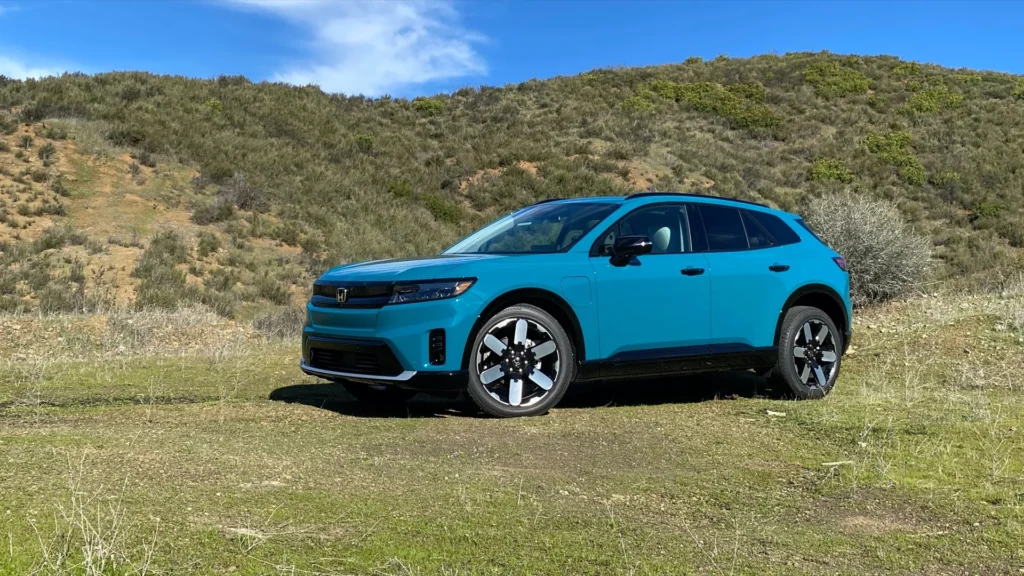The Prologue is Honda’s first mass-market EV. And fortunately it’s making a lot more sense on arrival than it was a few months ago.
What happened last month was a big contextual piece. The company rolled out two head-turning Honda EV concepts providing a glimpse of its 0 Series (Zero Series) electric vehicles set to launch in 2026—and they look like clean-slate efforts that pay no heed to precedent. Neither of these concepts don retro cues or heritage design; they’re a radical new look for Honda. And the U.S. market is a priority for them.
But the Prologue really doesn’t look or feel that much like a Honda—neither a contemporary, mass-market Honda like the Accord or Civic, nor a model that inherits the sci-fi-tinged design and quirky interface details of the former Clarity Electric or the Europe-focused Honda E.
In that lens, the Prologue makes perfect sense. It isn’t the one that’s going to win over EV fans with a more digital-savvy design than the Hyundai Ioniq 5, punchier performance than the Kia EV6 GT, or a price beating the VW ID.4. It’s not the EV to win shoppers over from those other brands. But it is the one to keep Honda loyalists from leaving the brand for one of those others—and provide them an on-ramp that gets them used to the idea of an EV before the true headliners arrive.
It’s training wheels for dealerships, too, which may be relieved that the Prologue doesn’t remake the vehicle completely for the EV era. Yet.
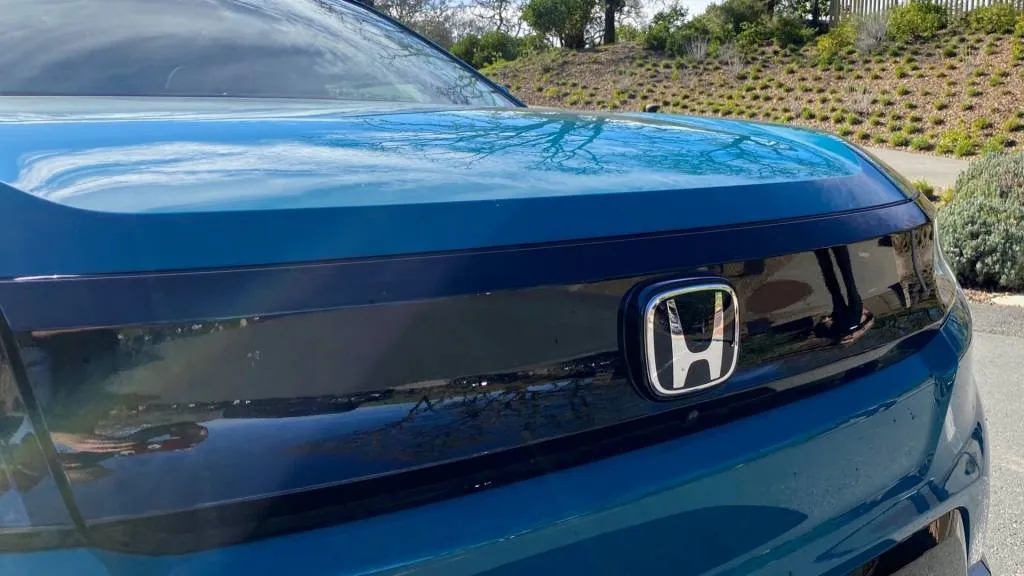
2024 Honda Prologue
Prologue is and isn’t a Honda
And back to the design point: Yes, the Prologue simultaneously IS a Honda design and ISN’T a true Honda. It’s a “top hat,” as those in the industry refer to it, fitted to a set of engineering “hard points” specified by GM, and cookie-cut into a vehicle, over GM’s Ultium propulsion platform and a fundamental vehicle layout that isn’t far removed from that of the Chevy Blazer EV.
Over part of a day with the Prologue, on a wide range of Northern California freeways, sweeping Wine Country highways, and tightly curved country backroads, I found that the Prologue doesn’t make any major missteps—all while driving, riding, and functioning in ways that won’t seem alien to your mom, your coworker, or the neighbor down the street who’s just starting to think about EVs.
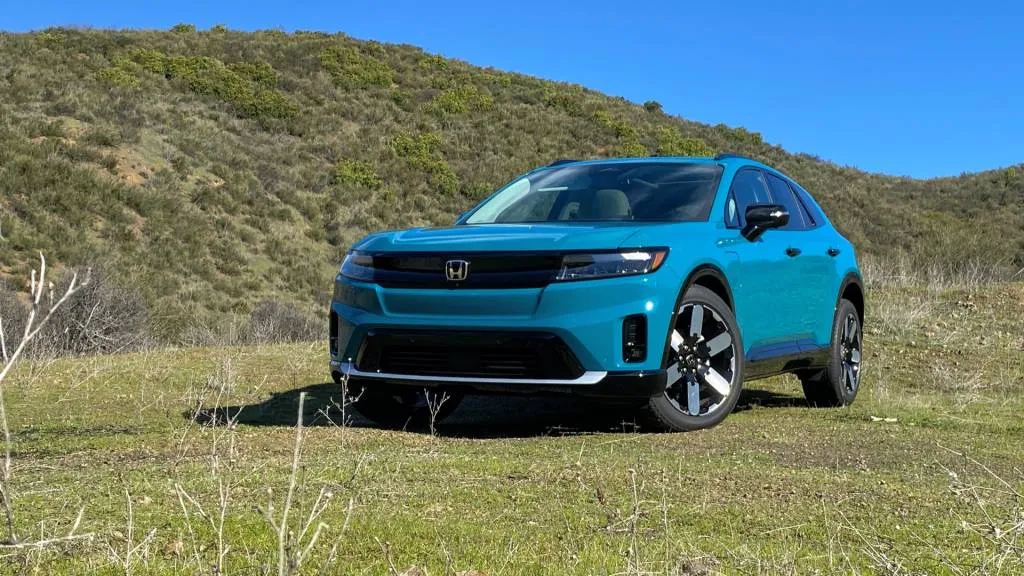
2024 Honda Prologue
For those not viewing every new Cybertruck review and wondering when Redwood will arrive, this may be the right amount of radically different. The Prologue has conventional door handles, and the doors close with a reassuring thunk. It has a start/stop button and a steering-column shift lever. There are physical climate control buttons and dials, and vents that you can grab and aim with your fingers. I paired my iPhone and started using wireless CarPlay in less than a minute.
Prologue power, range, and efficiency
Single-motor versions of the Prologue have a permanent-magnet motor up front delivering 232 hp and 238 lb-ft of torque. Dual-motor Prologues make the same 288 hp and 333 lb-ft of torque that some versions of its Chevy Blazer make with an induction motor at the rear, but Honda says its version in the Prologue has a permanent magnet motor at the rear instead—a move that might ramp up the effectiveness of the regenerative braking (I saw nearly 170 kw at several points).
All Prologues have an 85-kwh (gross) battery pack, with EPA range ratings of 296 miles for single-motor front-wheel-drive versions and 281 miles for most of the dual-motor all-wheel-drive versions. Top Elite AWD versions like the one I drove come with the lowest range rating of 273 miles—due mostly to their larger 21-inch wheels.
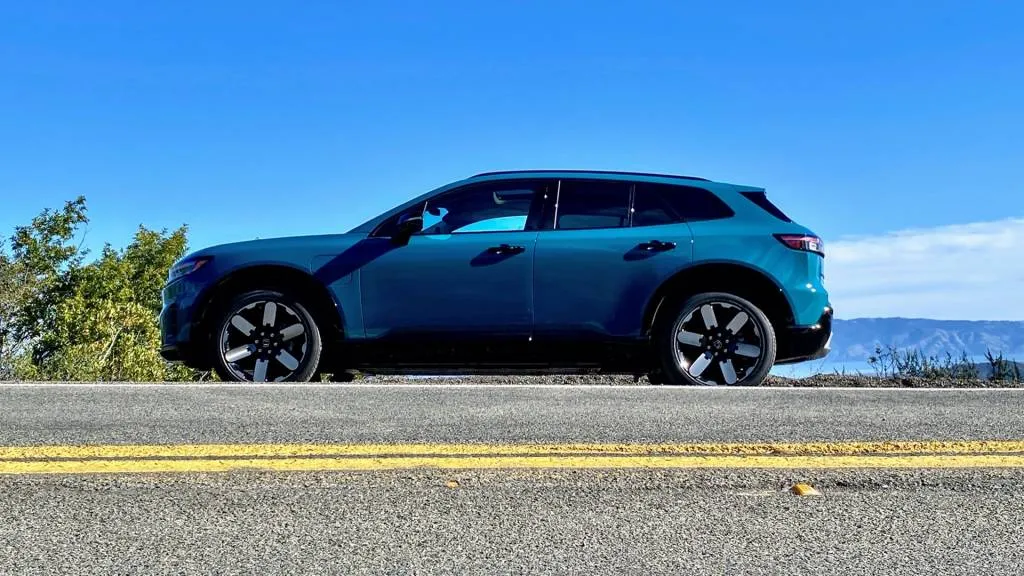
2024 Honda Prologue
Over about three hours of driving overall, covering about 120 miles with a lot of terrain ups and downs and emphasizing the performance side of the Prologue for some time, we averaged 2.9 miles per kwh—suggesting a full range of well over 200 miles even in those situations. Weather was sunny in the 60s.
The Prologue, as is the case for so many EVs, is no lightweight. The official curb weight of the top Elite AWD version I drove is 5,273 pounds. With a long steering ratio and a firm but well-damped feel, the Prologue feels in its element on the freeway, where lane changes are the most abrupt maneuver. On the other hand, out on narrow country backroads with a choppy surface, the Prologue felt completely out of its element, with the front and rear multi-link suspension arrangement balking to keep all the weight coordinated, even with smooth steering inputs. A more front-heavy weight distribution of 54/46 front/rear for the AWD, the least front-heavy in the lineup, probably doesn’t help quell the careening impressions. Nor does the front seats’ near complete lack of side bolstering to keep occupants in place.
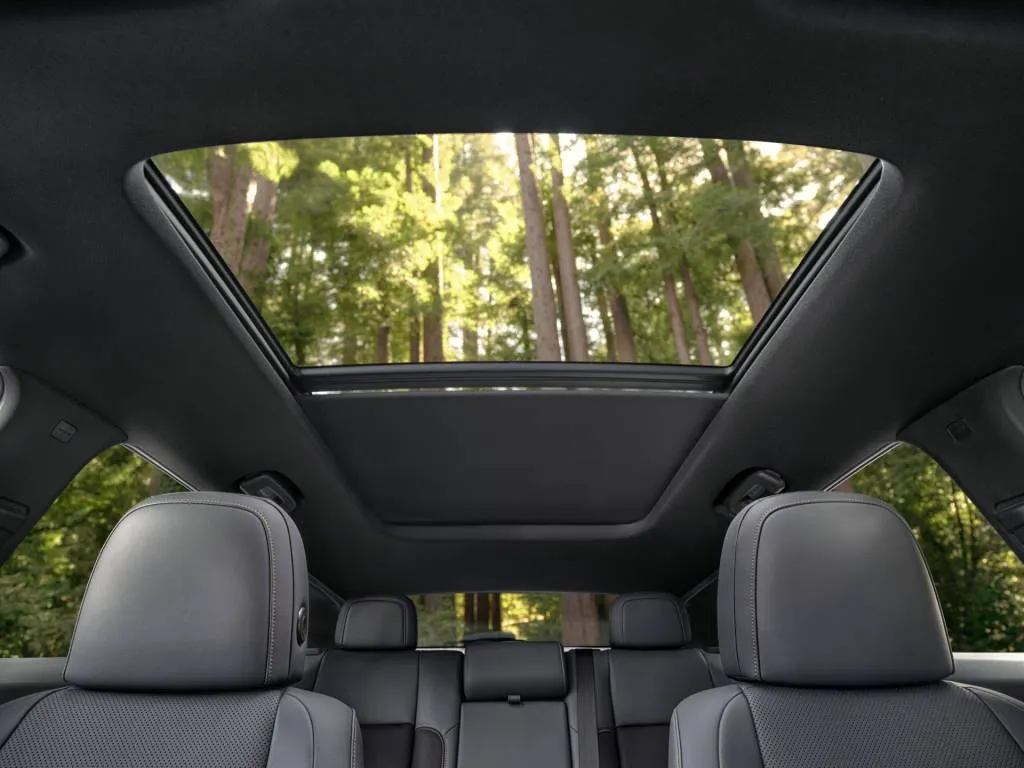
2024 Honda Prologue
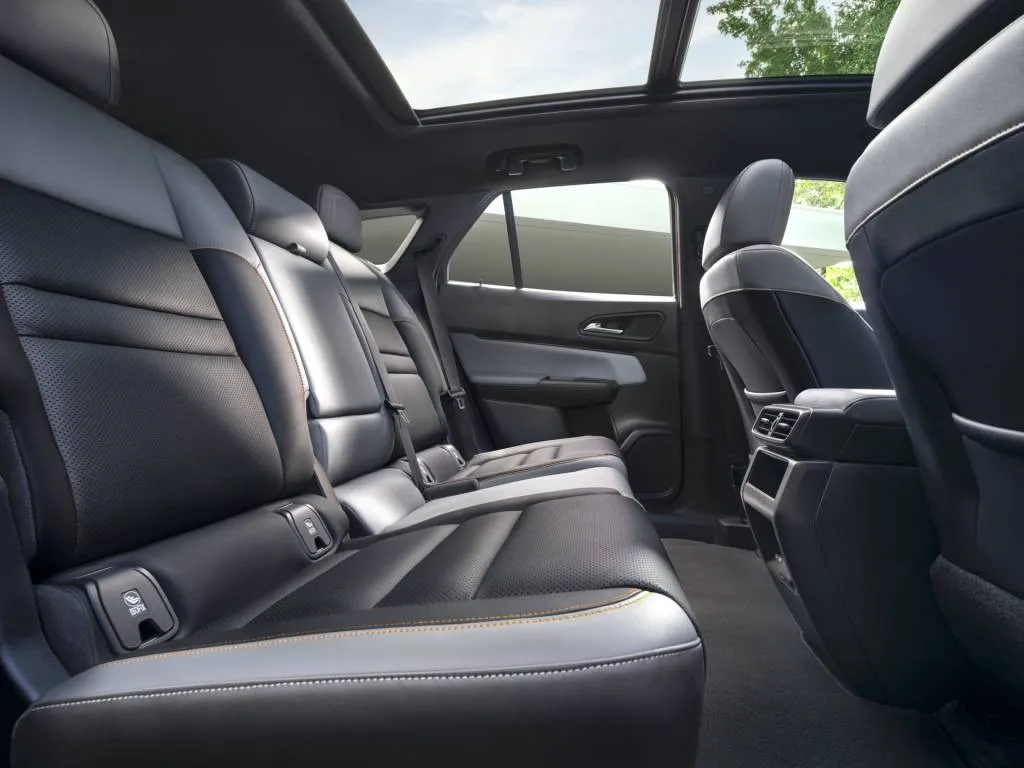
2024 Honda Prologue
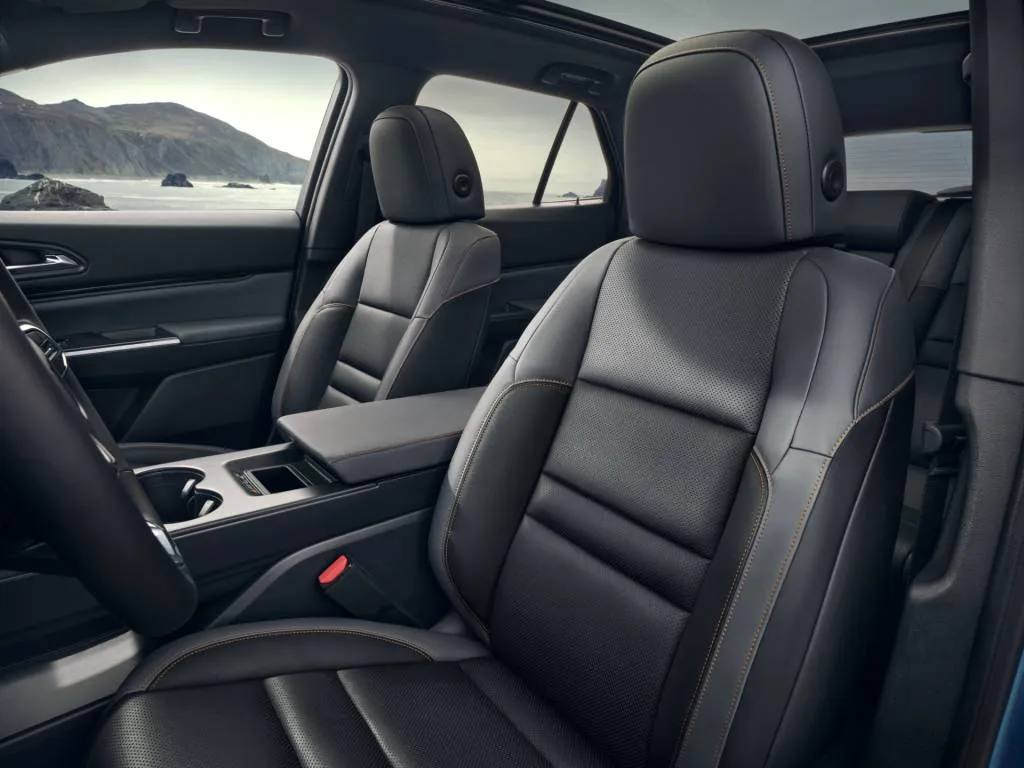
2024 Honda Prologue
Loads of cabin space. Except that headroom…
As I pointed out in my first look at the 2024 Honda Prologue, legroom is plentiful front and rear, door cuts are huge, and the seat height itself is just right for easy entry and exit. The only thing missing from this sense of abundance is headroom in back, in the outboard positions, where the surround for the vast sunroof gets in the way. It’s omitted in base EX versions, so try them if you have six-footers to load in back.
Cargo space is also vast, at 25.2 cubic feet with the second row up, with an extra 5.0-cubic-foot well down low. Lift heights are low, and the rear seatbacks flip forward and back with one hand.
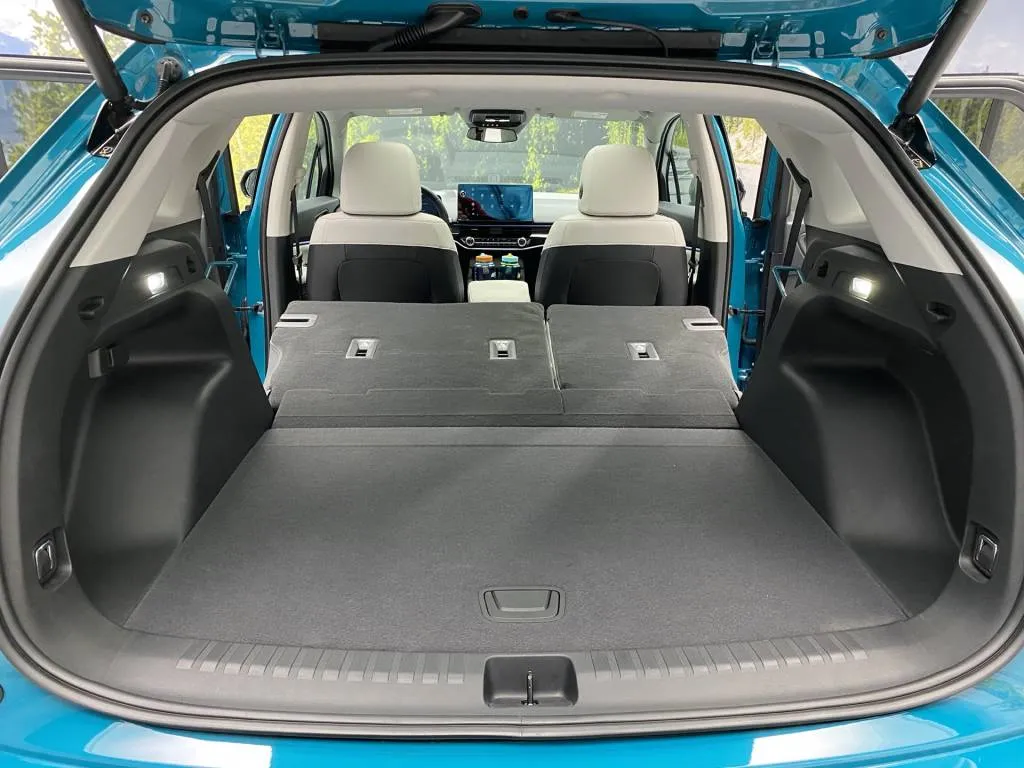
2024 Honda Prologue
Take a step back from the outside, and there’s simply not an awkward angle around the vehicle. The profile itself is nicely proportioned from the side, and the Prologue has a distinctive look from the rear plus a pleasant, almost sedan-like stance from the front, with safety sensors stowed away in a flush panel where the grille might otherwise be.
Like the Blazer EV, the Prologue has three regenerative braking settings: off (some deceleration), normal (moderate regen), and high (aggressive regen). A paddle behind the steering wheel allows you to toggle through them, and an auto-hold button keeps “creep” at bay when you lift off the brake pedal. Only the top Elite version has a Sport mode button that tweaks accelerator inputs, ramps up the regen slightly, affects steering boost somewhat, and plays an audio soundtrack (no thanks).
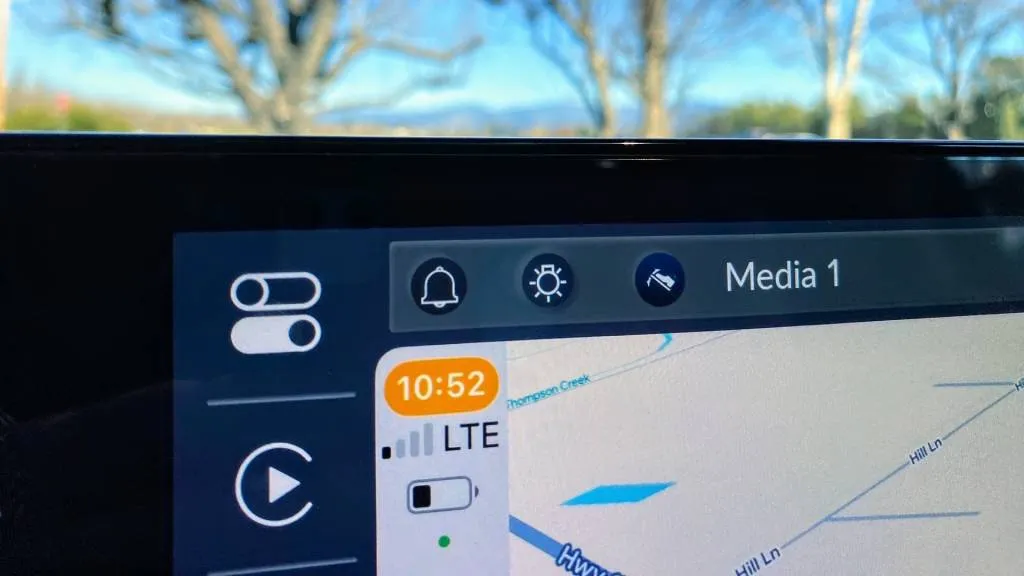
2024 Honda Prologue
What the Prologue does have are some quirks. Among them, the headlights and the regenerative braking modes can only be controlled via an icon in the top tray of the infotainment screen.
The Prologue’s infotainment system itself could benefit from a flatter structure, and finding various settings tended to involve clicking on a home-screen icon and sifting through secondary menu options. But based on initial impressions, the system responded quickly—with none of the Blazer EV’s momentary glitches Green Car Reports has noted or its more serious woes seen by some other owners and outlets. And yes, there’s both Apple CarPlay and Android Auto.
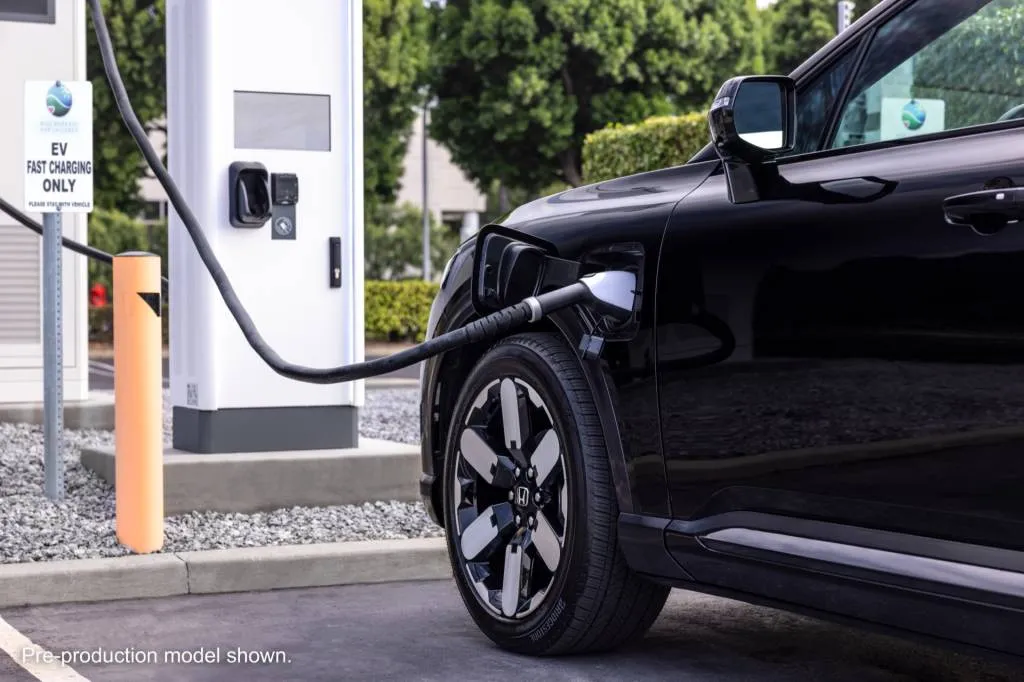
2024 Honda Prologue
Prologue goes Google on route-planning, preconditioning
Like GM’s, it starts with Google Built-In and is technically built on the Android Automotive operating system. It walls off Google Maps, Google Assistant, and the Google Play Store as native apps on the vehicle, and permits route planning that rests on Google’s charger database and taps into the vehicle’s state of charge as you go.
Unlike the Chevy Blazer EV, which has a manual preconditioning button, the Prologue’s preconditioning is only activated by a charging destination, Honda confirmed to Green Car Reports. However, Honda emphasized that it went its own way, software-wise, from GM at a particular point in the system’s development, in a way that isn’t at all affected by the woes affecting the interface in the Blazer EV.
The Prologue offers up some charging specs that aren’t especially impressive for road-trip use, and Honda essentially discouraged us from trying it—partly, as three out of four connectors were currently down at the nearest Electrify America station at the time of the event. DC fast-charging can hit a peak 150 kw and permits a 20-80% charge in as little as 35 minutes. Thinking through how that’s 60% of available range, it’s likely a couple hours at 70 mph, then the charging sweet spot for a half hour, in anything less than ideal conditions. On the brighter side, Prologue’s 11.5 kw onboard charger easily allows the capability for a full home charge overnight with the proper hardware.
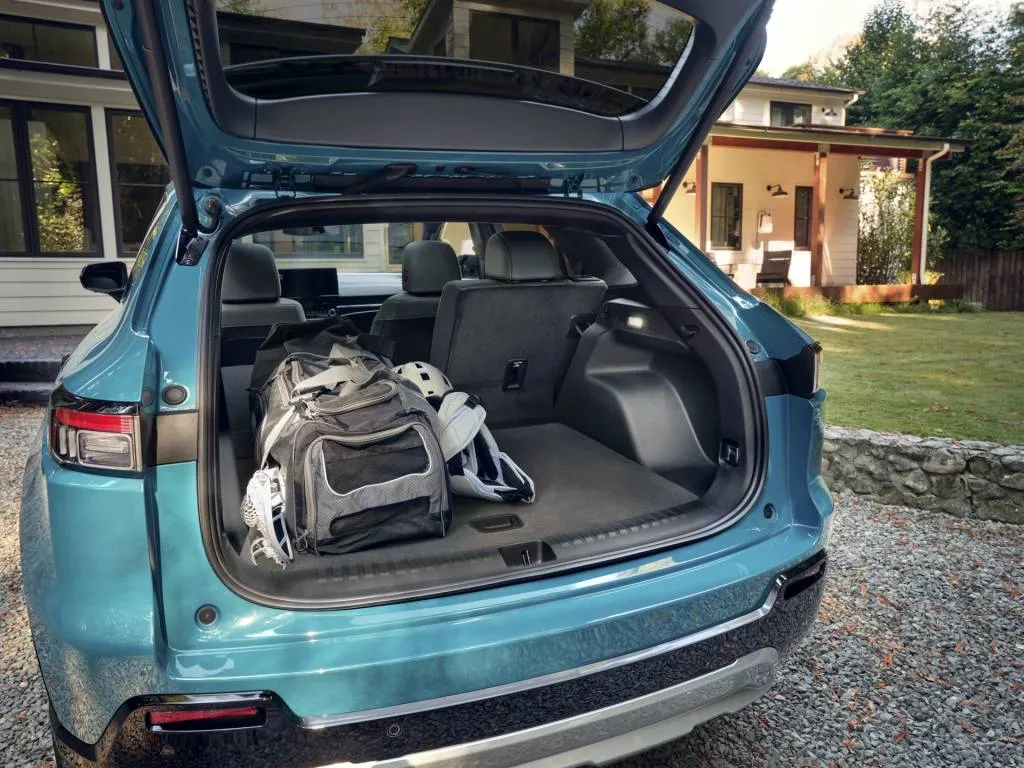
2024 Honda Prologue
Prologue $7,500 tax-credit eligibility factors in
The Prologue starts at $48,795 in single-motor front-wheel-drive form, including the $1,395 destination charge, and include pretty much all the tech features, as well as wi-fi capability, heated front seats, a 10-way power driver seat, and dual-zone automatic climate control. Dual-motor all-wheel-drive versions start at $51,795, which seems like it might be the best deal of the lineup. Mid-level Touring models start at $53,095 and $56,095, respectively, for front- or all-wheel drive and add a panoramic sunroof, Bose premium audio, memory seat settings, and trim upgrades.
In the top-trim Elite AWD version I drove, costing $59,295 but adding 21-inch wheels plus perforated leather upholstery, accent stitching, a heated steering wheel, and cooled front seats, it simply seemed that the Prologue is nudging too close to the Kia EV9, the Cadillac Lyriq, sportier versions of the Chevy Blazer EV, or the Acura ZDX, among others.
The Prologue is expected to be eligible for the full $7,500 EV tax credit, but most if not all of those models will be too.
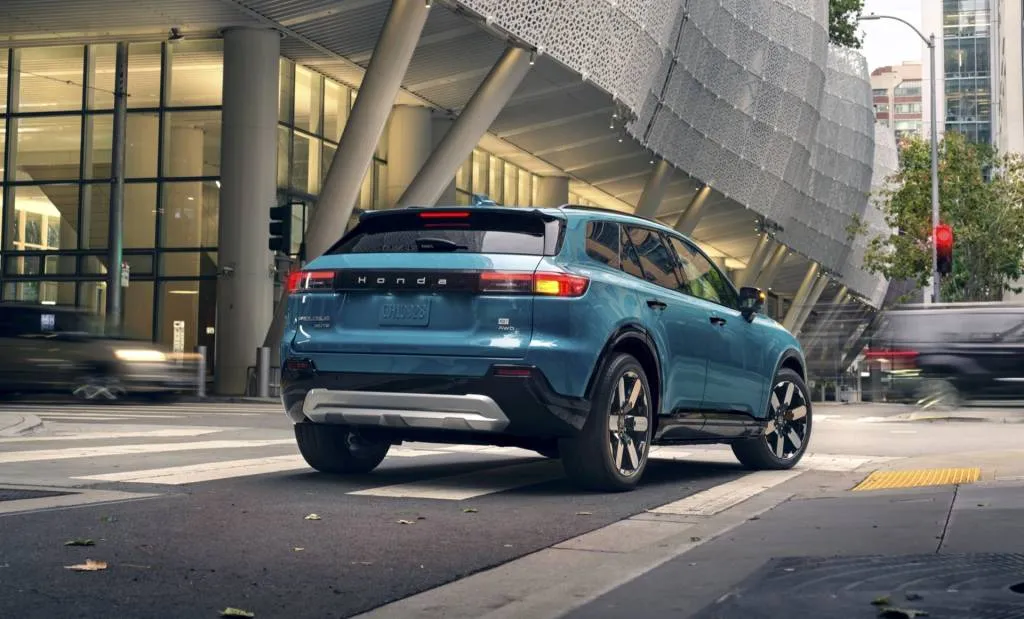
2024 Honda Prologue
Will GM even be able to build enough of them?
There’s another big question here, too. Honda is counting on 40,000 of these Prologues per year from GM, starting this first year. It’s convinced it can sell them. But considering GM’s struggle to ramp up EVs, through a period with no lack of demand, that may be a reasonable concern for Honda.
As I summed after first seeing the Prologue in September, this EV is exactly what it needs to be—an effort that registers as “normal,” not a niche effort like the Toyota bZ4X. Now after spending more time in the Prologue, and driving it, I’m convinced that Honda made the right choice for capturing EV-curious Accord, CR-V, or Passport drivers—and maybe a few Camry and Highlander drivers along the way.

